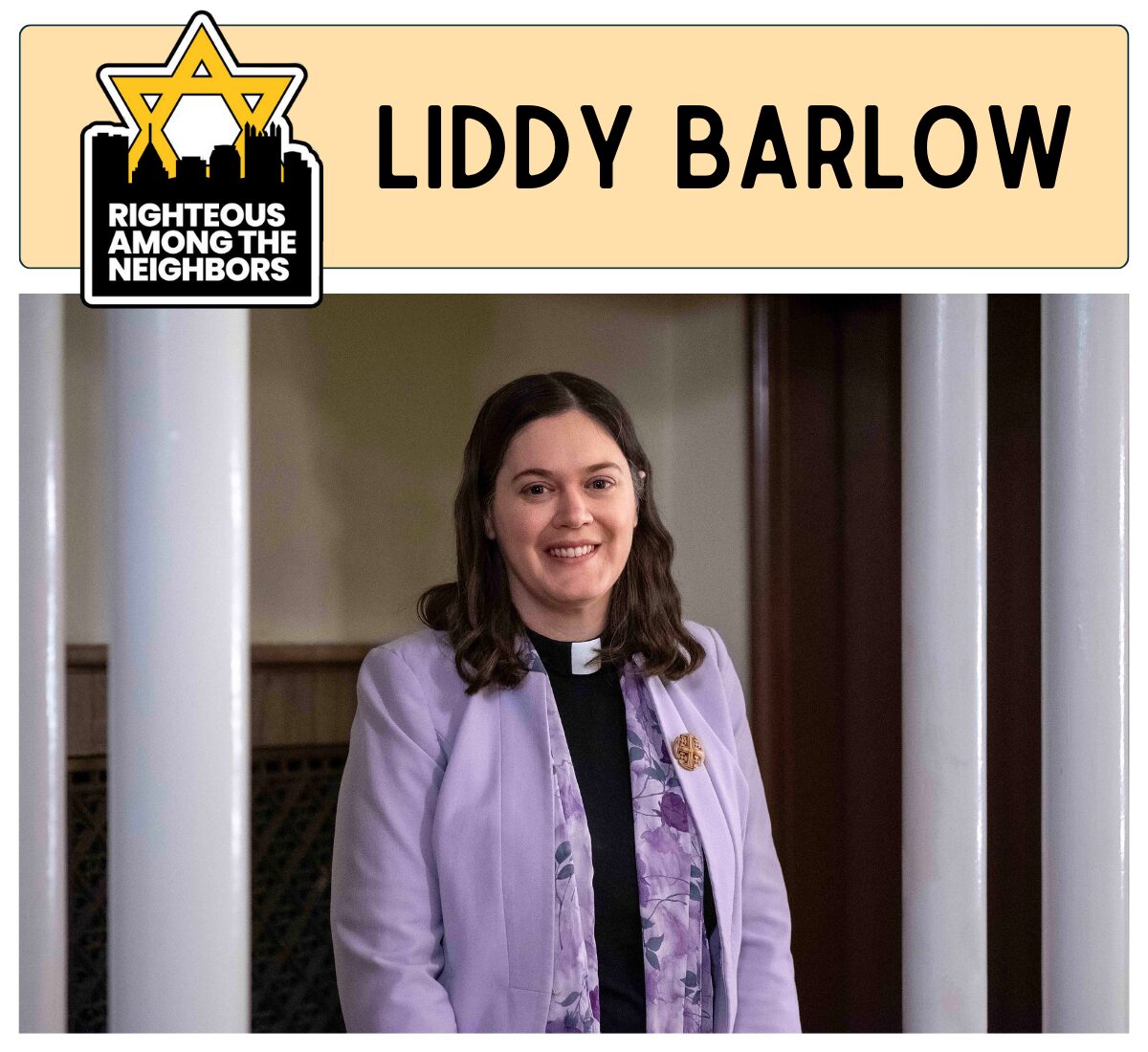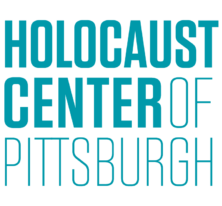
Photo by Brian Cohen
Profile by Lilly Anderson
Leader of the Christian Associates of Southwest Pennsylvania, Liddy Barlow has known interfaith crisis response since her college years. In fact, during her first day of classes her senior year at Mount Holyoke College in Massachusetts, the 9/11 terrorist attacks occurred in New York City, Pennsylvania and Washington D.C.
“That was really my first experience of interfaith crisis response, which has been something I continue to do in my ministry now,” Barlow said.
According to Barlow, an interfaith response involves “taking a terrible thing that happens somewhere in the world or in the case of the Tree of Life shooting, locally, and finding ways to be a part of providing the kind of comfort and resilience needed in those moments through the simple acts of friendship and compassion.”
At her all girls college, Reverend Barlow, was immersed in interfaith prayer and community weekly.
“I was able to be a leader in the campus Protestant community,” Barlow said. “I was also able to participate in a lot of interfaith activities on campus. We had nine active faith groups. The best thing we did is every Wednesday, we would have an interfaith prayer lunch and a different [religious] community would lead that program every week.”
With her interfaith experiences leading her path, Barlow stepped into a leadership role for the Christian Associates and a supportive role for the Jewish community when the attack on the three synagogues worshiping at the Tree of Life occurred on Oct. 27 2018.
Years after her senior year at Mount Holyoke, Barlow’s close interfaith relationships with other religious leaders of Southwest Pennsylvania impacted her response to the attack on the synagogues.
“Well before Oct. 27, Christian Associates as an institution and me as an individual leader in it had really deep interfaith relationships,” Barlow said.
As a representative of the Christian Community, Barlows relationships were the foundation of her supportive role.
“As soon as I found out, and I found out on social media while the shooting was going on, I had numbers in my phone of all kinds of Jewish leaders in the town,” Barlow said.
Barlow quickly began reaching out to people in the Jewish community.
“That outreach to them was in some ways professional, that was me representing the official Christian community, but it was mostly personal,” Barlow said.
As a friend of many spiritual leaders across Pittsburgh, including Rabbi Gibson who Barlow had met on a previous trip to Israel, the impact became personal.
“I knew these people, I cared about them, and I wanted to make sure they were okay,“ she said.
The immediate expression of solidarity and support provided the community what was needed to heal from the tragedy. As a representative of the Christian community, Barlow’s work those days is what she considers to be some of the “most meaningful and most intense days of her ministry so far, and possibly the entire ministry.”
Barlow also spoke at the community vigil held at Soldiers and Sailors Memorial Hall in Oakland after the tragedy.
“My call in the midst of it was to be a public theologian; my role was to pastor the community and to help,” Barlow said.
Barlow does not pastor a local congregation but her voice is impactful throughout the local faith community.
“It’s what ministry is always about, taking this well of tradition and ideas that has worked for people for thousands of years and draw out what is speaking to this community in this critical moment,” Barlow said.
Following the shooting at the Tree of Life, Barlow spoke at other memorials and vigils.
“I used an image in the Book of Revelation of the Tree of Life.The tree in the book bears 12 kinds of fruit and the leaves of the tree are for the healing of the nations,” Barlow said.“The tree has 12 kinds of fruit and it sounds kind of like Squirrel Hill, it sounds like the diversity. That moment was to respond to this absolute tragedy by affirming what we stand for as a community.’
Following the shootings in Charlottesville, Virginia in 2017, the Center for Loving Kindness at the Greater Pittsburgh Jewish Community Center was established. Alongside Rabbi Ron Symons, their “We Have to Talk” initiative brought interfaith leaders together, and they planned for a spiritual leader breakfast for the first week of November in 2018.
“During the week of Oct. 27, I was like, it’s been the high holidays but on Monday I have to call Ron and put the breakfast together. Of course the shooting was Saturday and everything just exploded,” Barlow said. “As I was on the phone with Ron the weekend of the shooting, I am like look, ‘we are supposed to do this breakfast, we should totally cancel that.’ He says ‘no, no I think we need to keep it because we have to talk’.”
That meeting became the banner of the work Barlow and Symons had done; the breakfast expanded from an intimate meeting to a large gathering of 150 spiritual leaders from nine faith groups around Pittsburgh.
“We think that simply being in dialogue and relationship is something,” Barlow said. “You don’t have to go do something else in order to have that relationship be valid, it matters just that we know each other.”
As a believer of the intense impact that showing up and supporting others has, Barlow has formed an intertwined web of spiritual leaders and friends in Pittsburgh.
“Those relationships help us to have conversations in challenging times and they help us support one another. The interfaith relationships between spiritual leaders can provide support that can be hard to get even within your own tradition.”
